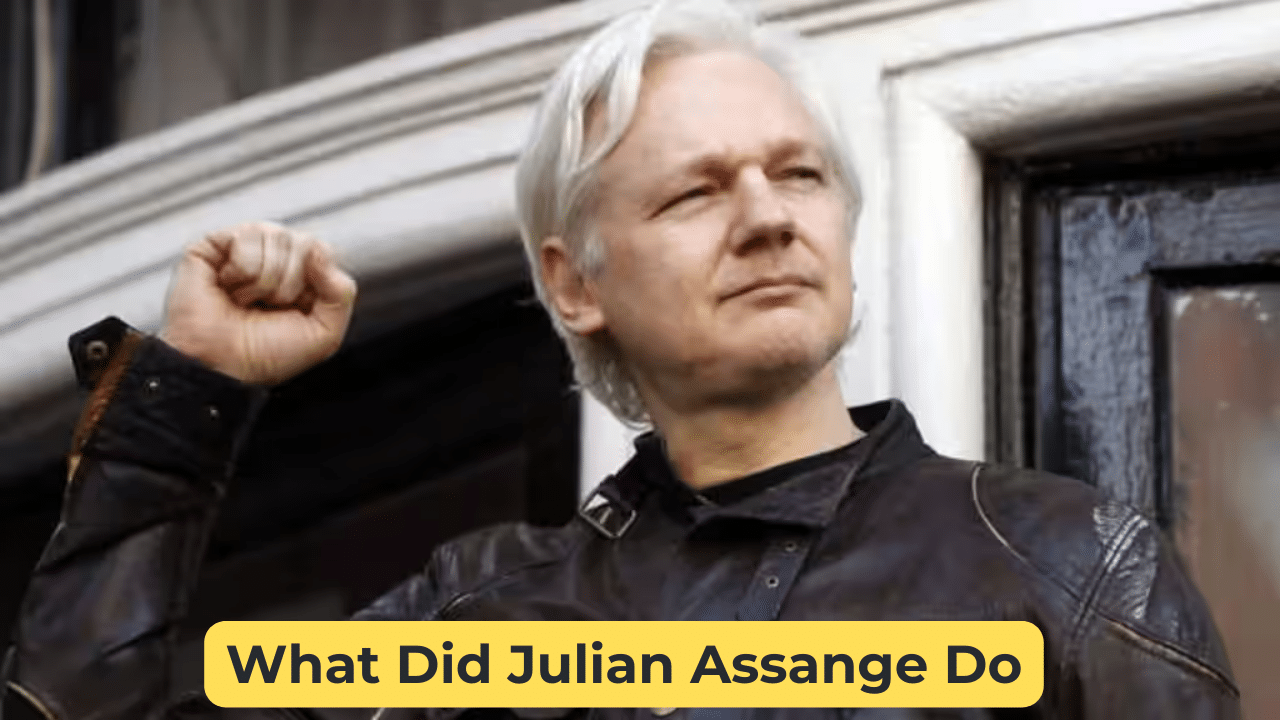What Did Julian Assange Do: Introduction
Julian Assange, the controversial figure behind WikiLeaks, has been at the center of global attention for over a decade. His journey involves a labyrinth of legal battles, political controversies, and significant revelations that shook the foundations of modern governance and transparency. This article dives deep into Assange’s role, the impact of WikiLeaks, and the latest developments in his ongoing saga.
Who is Julian Assange?
Born in Australia, Julian Assange’s early life was marked by a keen interest in computer programming and a knack for hacking, which led to legal issues in his youth. Over time, Assange evolved into a pivotal figure in the realm of digital activism and whistleblowing. His reputation solidified in 2006 with the founding of WikiLeaks, a platform designed to anonymously publish sensitive documents from governments and organizations.
The WikiLeaks Phenomenon
Assange’s Key Contributions
Julian Assange’s pivotal moment came in 2010 when WikiLeaks released a video titled “Collateral Murder,” showing a US Apache helicopter attack in Baghdad that resulted in civilian casualties, including two Reuters journalists. This leak was followed by the publication of confidential US military documents provided by Chelsea Manning, revealing undisclosed civilian casualties in Afghanistan and Iraq.
Impact and Global Reaction
The revelations sparked global outrage and debate, with supporters lauding WikiLeaks as a champion of transparency and accountability. Conversely, governments criticized Assange for endangering national security and diplomatic relations. The disclosures triggered widespread public scrutiny of US military interventions and policies, shaping global perceptions of governmental transparency.
Legal Battles and Extradition Saga
Assange’s Legal Challenges
Julian Assange faced numerous legal challenges, starting with allegations in Sweden related to sexual misconduct, which he denied and attributed to a smear campaign aimed at facilitating his extradition to the United States. After seeking asylum in the Ecuadorian Embassy in London in 2012, Assange spent seven years avoiding extradition attempts by the US.
Extradition to the United States
In 2019, Ecuador revoked Assange’s asylum status, leading to his arrest by UK authorities. The US charged him under the Espionage Act for conspiring to disclose classified information, sparking an extended legal battle focused on journalistic freedoms versus national security concerns.
Recent Developments and Plea Deal
Assange’s Current Status
After years of legal wrangling, Julian Assange recently reached a significant turning point. In a deal with US authorities, he agreed to plead guilty to one charge, facilitating his release from a UK prison. This resolution follows diplomatic efforts and political pressures from various quarters, signaling a potential closure to Assange’s prolonged legal ordeal.
Reactions and Fallout
Assange’s plea deal has evoked mixed reactions globally. Supporters of press freedom view it as a victory, citing Assange’s contributions to exposing governmental abuses. Critics, however, argue that his actions jeopardized national security and diplomatic relations, raising ethical and legal questions about the role of whistleblowers in modern society.
WikiLeaks: Beyond Assange
Legacy and Continuing Impact
Despite Julian Assange’s legal troubles, WikiLeaks continues to operate under the leadership of journalists committed to transparency. The platform remains a thorn in the side of governments and corporations, regularly publishing leaked documents that shed light on secretive practices and misconduct.
Conclusion
Julian Assange’s journey from a computer hacker to a polarizing figure in global politics reflects the complexities of modern digital activism and freedom of information. His impact through WikiLeaks has reshaped global discourse on transparency and accountability, leaving a lasting legacy in the realms of journalism and civil liberties.
